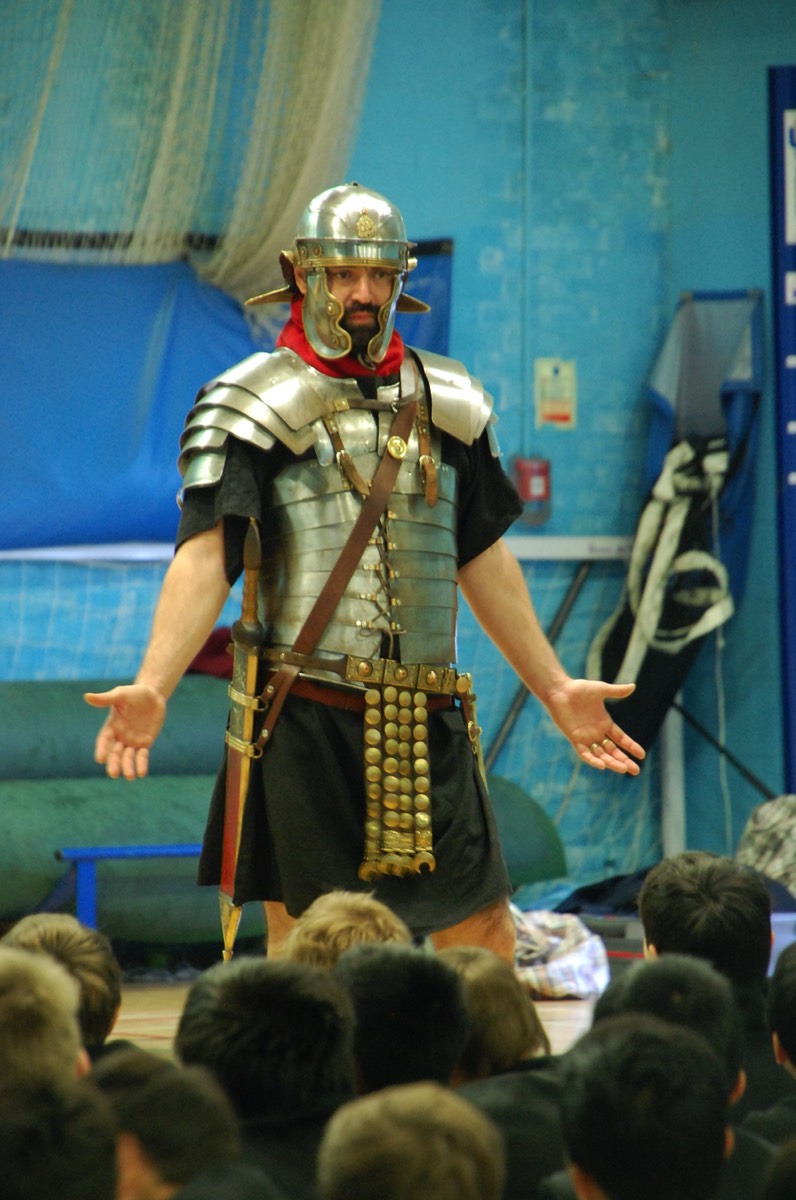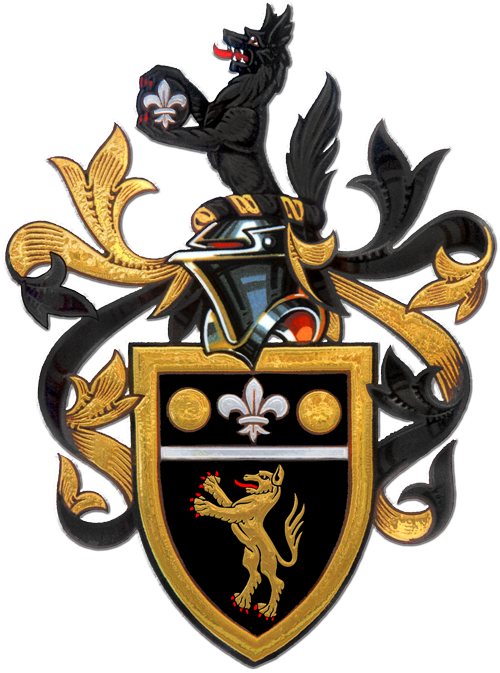Classics
The Latin and Classics curriculum at Wilson’s enables pupils to develop their language and linguistic skills, whilst also learning more widely about Classical Civilisation through art, artefacts, archaeology and literature in translation. The ancient Greeks and Romans had profound and continuing effects on Western civilization, both culturally and linguistically, and the study of Latin and Classics gives students the chance to learn more about the world around them and to reflect deeply about themselves and the lives of others – an important quality in a modern, multi-cultural society. Latin has long been respected for its academic quality, teaching students about grammar, literacy and history, benefitting learning across the whole curriculum.
Our Staff
- Ms Banner-Hill (Head of Department)
- Miss Cohen
- Mr Nash
Key Stage 3
Core Concepts
| 1 Vocabulary |
Exceeding: Has an exceptionally strong command of all vocabulary encountered, recognises words in their various forms and makes sound judgments of the meaning of unknown words through an understanding of stems and derivations. Secure: Has an excellent knowledge of required vocabulary, usually recognises words in their various forms and can sometimes make good judgments about unknown words. Developing: Has a growing knowledge of the required vocabulary. |
| 2 Translation and comprehension |
Exceeding: Shows excellent understanding of extended stories, which use the past and present tenses, all cases of required nouns, irregular elements and concessive clauses, through answering comprehension questions with detail and accuracy. Translates unseen Latin extracts into idiomatic and natural English with an excellent level of accuracy and style. Secure: Shows good understanding of stories, which use the past and present tenses, all cases of required nouns and concessive clauses, through answering comprehension questions with detail and accuracy. Translates unseen Latin extracts into idiomatic and natural English with a good level of accuracy and style. Developing: Shows some understanding of stories, which use the past and present tenses and all cases of required nouns through answering simple comprehension questions. Translates unseen Latin extracts into English, although sometimes lacks accuracy and/or style. |
| 3 Grammatical knowledge |
Exceeding: Shows excellent knowledge of and can recognise the form of familiar and unfamiliar words. Students can:
Translates into Latin (prose composition) accurately, using past and present tenses and using a wide range of vocabulary and structures. Sentences show an excellent understanding of word order and adjectival agreement. Secure: Shows good knowledge of the grammatical features listed for the required vocabulary. Translates into Latin (prose composition) accurately, using past and present tenses of required vocabulary. Sentences show a good understanding of word order. Developing: Shows some knowledge of the listed grammatical features. Translates simple sentences into Latin (prose composition), using the present tense and required vocabulary. Sentences show some understanding of word order. |
| 4 Analysis, evaluation and appreciation of sources |
Exceeding: Demonstrates exceptional understanding by using sources to describe, explain, make judgments and express personal opinion about the social, political, archaeological and literary aspects of the ancient world. Responses demonstrate a very perceptive understanding of relevant aspects of the source’s key themes and ideas. Analysis is very well developed, with perceptive connections made between different parts of the ancient world and other sources encountered. Supporting evidence is expertly selected and give evidence of deep and independent thought. Secure: Responds to familiar and unfamiliar sources perceptively to offer sound analysis and evaluation. Responses are insightful and take into account current knowledge of the ancient world. Opinions are supported with the use of evidence. Developing: Demonstrates an understanding of sources but responses are sometimes surface level and demonstrate a simplistic understanding of key issues and themes from the ancient world. |
Outline Programme of Study
Grammar, vocabulary and linguistic aims
- Identify and use the present and past tenses, different cases of nouns and adjectives, and common Latin idiomatic structures.
- Use and manipulate a variety of key grammatical structures and patterns in order to compose Latin sentences.
- Develop and use a wide-ranging and deepening vocabulary appropriate to the ancient world and show appreciation of the influence of Latin on English and other Romance languages.
- Translate passages with familiar and unfamiliar language
- Show comprehension and analytical interpretation of a range of different literary, visual and archaeological sources to develop and expand understanding of the language and culture of the Romans and their contemporaries
Subject Content
- Know about the development of Rome from its mythological foundations the rule of the Kings, the development of the Republic and development of the Empire
- Understand habitation in Rome: where different people lived, the living conditions and the dangers (specifically of fire, and the Great Fire of Rome)
- Know about major buildings and built infrastructure in Rome and consider the impression it would have on visitors.
- Know and understand Roman entertainment, their religion and beliefs and health and sanitation.
- Understand the complexities of slavery and manumission in the Roman world, and compare this to other instances.
- Know about the Romans in other parts of the Empire (specifically Britain), implications of foreign rule, ‘pax Romana’, assimilation of foreign customs, and the effect of conquest on societies.
- Understand the Roman Army: who joined and why, resistance to the Romans, and what lasting affect military presence had within the Empire.
- To understand the importance of sea for trade, travel and communication, as well as the dangers of piracy and storms.
- To know that the Roman Empire was vast and diverse, and to learn about the lives of many different types of people through the stories and sources.
- To learn about the Greek and Roman gods and a range of mythological stories to consider what they can reveal about belief, the connections between mythology and history, the human condition and the expression of idea
Key Stage 4
Examination Board Eduqas
Outline Programme of Study
Year 9
- Genitive case, pluperfect tense, the imperative, adjectival agreement, pronouns, the relative clause, and participles.
- Vocabulary learning from the textbook.
- Life in Roman Britain and Egypt, including Boudica’s revolt.
- Component 3B: Roman Civilisation (City of Rome until 2026), which requires in-depth study of visual, literary (texts in translation) and archaeological sources within an overarching theme.
Year 10
- The subjunctive mood and clauses which take the subjunctive, the ablative case, and indirect statements.
- Explore topics including the Roman Army and the City of Rome alongside and through the stories they encounter in the coursebook.
- GCSE vocabulary list (about 440 words). Most of these words will already have been learnt in Years 7-9.
- Component 2: Latin Literature and Sources (Love and Marriage until 2026), reading and analysing original texts in Latin of various genres, alongside visual sources around a specific theme.
- Complete study of Component 3.
Year 11
- Passive voice.
- Practise translation and comprehension skills.
- GCSE vocabulary familiarisation.
- Complete study of Component 2.
- Prepare and practise extended writing for Components 2 and 3.
Key Stage 5
Examination Board OCR
Outline Programme of Study
Year 12
Language
- Vocabulary list of about 850 words.
- Translation of unseen prose texts.
- Prose composition.
- Study of the following accidence and syntax:
- Nouns of all standard types.
- Adjectives of all standard types.
- Adverbs Comparison of adjectives and adverbs and pronominal adjectives and related forms.
- Verbs of all standard types from all conjugations in all moods, voices and tenses, together with deponent, semi-deponent, defective, irregular and impersonal verbs including the impersonal passive of intransitive verbs.
- Compound verbs of regular formation using all the common prefixes, including associated consonant and vowel changes, and where the prefix retains its normal meaning.
- Cardinal numbers 1–1000 and ordinal numbers 1st – 10th Uses of prepositions.
- Standard patterns of case usage.
- Negation Direct statement, question (including deliberative) and command.
- Prohibitions, exhortations and wishes.
- Uses of the infinitive (as subject, as complement, prolative, historic).
- Uses of the participle (including ablative absolute).
- Uses of the subjunctive as main verb, e.g. wishes.
- Comparison (including the ablative of comparison).
- Uses of the gerund and gerundive (including the gerundive of obligation).
- Constructions using quominus and quin.
- Use of dum and dummodo to mean ‘provided that’.
- Subordinate clauses: Indirect statement (including extended oratio obliqua), question, command and prohibition Description (relative clauses, including common uses with the subjunctive) Purpose (including uses of the gerund and gerundive) Result (including the use of the comparative with quam ut) Conditional Causal Temporal Subordinate clauses within indirect speech Fearing Concessive Comparative.
Literature
- Prose Literature - Tacitus, Annals XII. 25-26; 41-43; 52-53; 56-59; 64-69 (Latin).
- Verse Literature - Virgil, Aeneid Book 2, 40–249.
Year 13
Language
- Translation of un-adapted unseen prose using the same accidence and syntax as in Year 12.
- Introduction of more vocabulary (no set list).
- Verse unseen translation and scansion.
- Prose composition of extended text.
Literature
- Prose - Tacitus, Annals XIII. 1-5; 10-18; 45-46 (English); XIV. 1-13 (Latin).
- Verse - Ovid Fasti 2 267–358, 685–852 English: Ovid, Fasti
Departmental and Co-Curricular, Trips and Enrichment Opportunities
- One major visit abroad every other year. The next trip is planned for Easter 2025 to The Bay of Naples. We also make regular theatre and museum visits.
- Weekly Classics Club for any student, at which speakers lead discussions on Classical matters in a relaxed manner.
- For older students there is a discussion group, where texts and ideas are discussed at an advanced level, through modern scholarship.
- Classical Greek - This is a highly intensive course that will appeal particularly to those with good levels of linguistic ability and who are prepared to put in the dedication such a course will take. Some students in Year 8 are offered Greek off-timetable with a view to completing the Intermediate Certificate in Classical Greek (ICCG) in Year 10.
Examples of marked work
See below for examples of marked work which demonstrate the level of work and ‘green pen’ engagement required to maximise progress in each Key Stage. Whilst we expect students to engage with this positively and if necessary, seek clarification from teachers, please be assured that in-lesson support is always available.
· KS3
· KS4
· KS5



